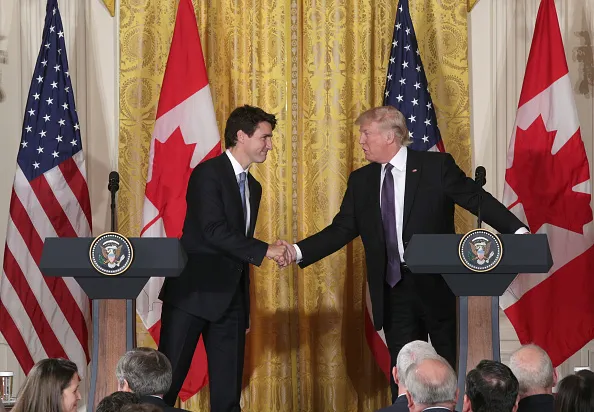The manufacturers of popular snack foods like Oreos and Slim Jims are bracing for potential new tariffs under the Trump administration, even though most food and beverage companies believe their business will not be significantly impacted.
There is uncertainty surrounding the possibility of 25% tariffs on Canada and Mexico, and companies in the snack, frozen food, and ingredients sectors are preparing contingency plans to navigate any potential challenges that may arise.
Sean Connolly, CEO of Conagra Brands, the maker of Slim Jim, emphasized the importance of being prepared for various outcomes to effectively manage any unexpected hurdles. Similarly, Dirk Van de Put, CEO of Mondelēz International, the company behind Oreo and Triscuit, stated that they are fully preparing for the impact of possible tariffs.
Mondelēz, which produces some of its snacks in Canada and Mexico for the U.S. market, is exploring strategies to offset increased costs, such as ramping up promotions and marketing for brands like Oreo and Ritz.
‘Our customers don’t just stop’
While most food companies primarily produce locally, many still import ingredients or products from other countries. With tariffs already in place for Chinese imports and upcoming tariffs for Canada and Mexico, companies are evaluating how to adapt to potential changes.
According to Brittany Quatrochi, an analyst with Edward Jones, companies may pass on higher costs to consumers if tariffs are implemented. However, executives are focused on making informed decisions based on the evolving tariff situation.
Ingredion, a company based in Illinois, has developed contingency plans to address the impact of tariffs on its business. General Mills CEO Jeff Harmening noted that while most of their products are sourced domestically, tariffs could still affect certain imports, such as oats from Canada.
Coca-Cola CEO James Quincey mentioned the possibility of shifting to plastic bottles if aluminum can costs rise due to tariffs.
Some companies, like Diageo, have already projected significant financial impacts from potential tariffs, with the spirits company estimating a $200 million reduction in operating profit.
A recent study by Numerator revealed that consumers are concerned about tariff-related price increases, particularly in essential categories like groceries. The study also found that a majority of shoppers are planning to adjust their shopping habits in response to tariffs.

